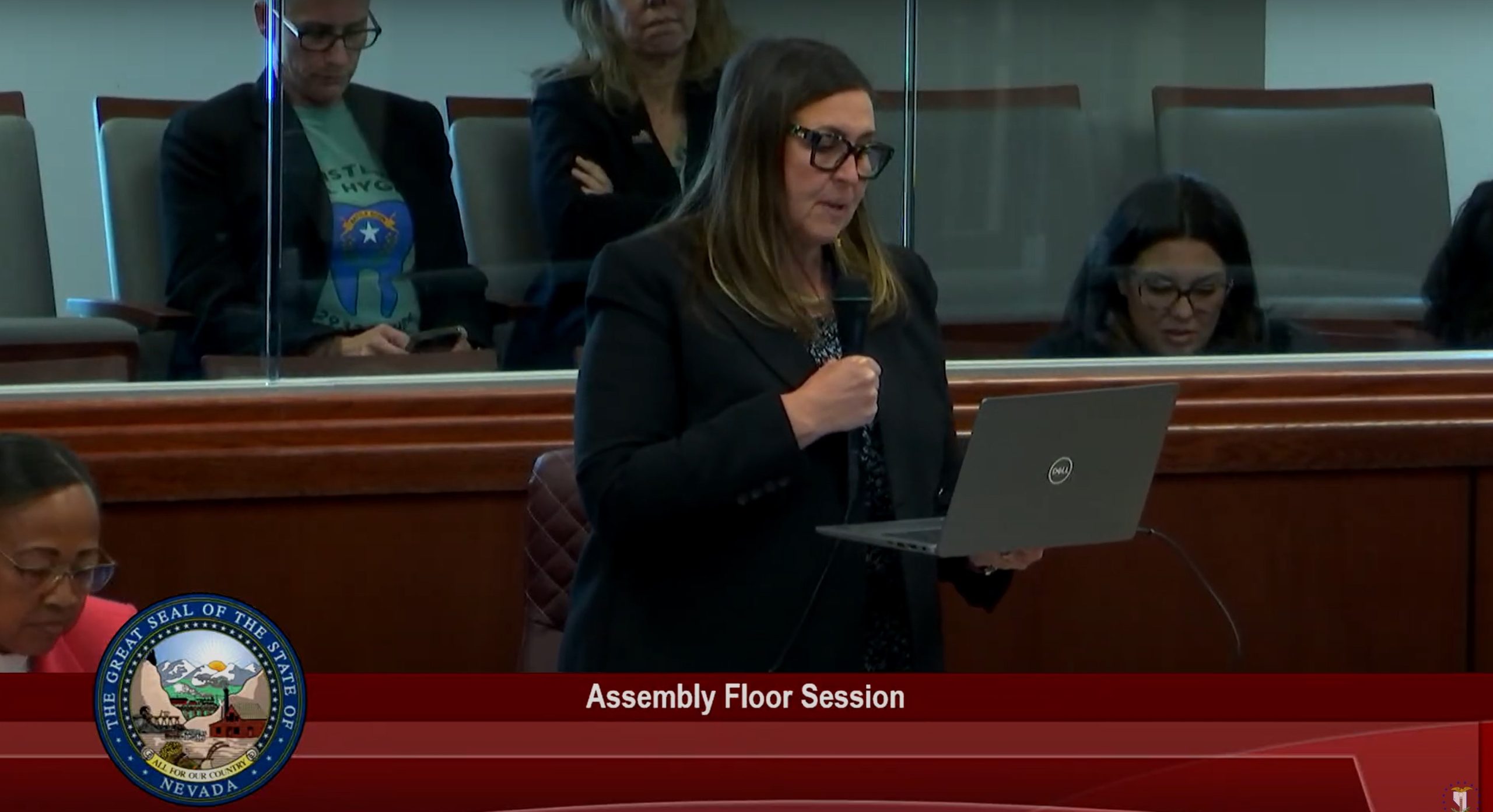Podcast: Play in new window | Download | Embed
The House recently passed legislation to require people to prove they are U.S. citizens when they register to vote.
As the Mountain West News Bureau’s Kaleb Roedel reports, Native American groups argue if the proposal becomes law, it would make it harder for them to vote.
The Safeguard American Voter Eligibility (SAVE) Act would also require people to register to vote in person. That means they could no longer register through the mail or online.
That would make it difficult for many tribal members, who live on reservations that are far from cities and highways, says Jacqueline De Leon.
She’s an attorney with the Native American Rights Fund and a member of the Isleta Pueblo in New Mexico.
“The nearest election offices for many rural Native Americans can be over 100 miles round trip.”
Voters would also have to show proof of U.S. citizenship – like a passport or birth certificate.
De Leon says the bill claims that tribal members could use their Tribal IDs.
“But Tribal IDs would have to have a place of location of birth on them to qualify. And most, if not all, Tribal IDs don’t have that on them.”
But the SAVE Act does face long odds in the Senate where seven Democrats would have to join Republicans to allow it to proceed to a vote.

(Courtesy: Wisconsin Conservation Voices / Facebook)
Voter turnout from tribal communities in Wisconsin has increased in recent years, with historic numbers for the recent state Supreme Court election.
Judith Ruiz-Branch reports.
The Menominee reservation turnout increased by more than 80% from the spring 2023 election.
Both the Red Cliff and Bad River Bands of Lake Superior Chippewa saw turnout jump more than 60%, according to Wisconsin Conservation Voices.
The group works with tribal communities through its Wisconsin Native Vote program.
Organizer Maria Haskins says listening sessions, roundtables, and regional dinners have been crucial in building relationships and getting people to the polls.
“With people seeing their peers being more active in the polls, and becoming more informed about a lot of these issues, is what is really motivating them to go out and cast their ballot, because I think that people are realizing their vote is their voice.”
Haskins says communities shared concerns at these events about issues like the opioid epidemic, which is severely affecting tribal communities, while drawing the connections of voting to their goal of tribal sovereignty.
The Menominee community has seen some of the most dramatic jumps in voter turnout.
In 2023, community voting increased by 75% and has seen a 220% increase since 2019.
Haskins says she believes the influx reflects the increase tribes are also seeing in representation, with more Native Americans running for office.
“I think that it’s a huge movement. It’s just something saying, ‘Our people deserve to have a voice in what is happening, and we deserve to have the ability to be involved.'”

(Courtesy Nevada Legislature / YouTube)
A bill to officially recognize Indigenous Peoples’ Day in Nevada on the second Monday in October passed the Assembly Floor on Tuesday with a vote of 27 to 15.
Executive Director of the Native Voters Alliance Nevada Taylor Patterson called its passage a victory.
In a statement Patterson said with its passage, the assembly affirms the contributions, stories, and resilience of Indigenous peoples are vital to the identity of the state.
Patterson thanked the bill’s sponsor Shea Backus (Cherokee), the only Indigenous legislator in Nevada, for carrying the bill forward.
It now advances to the Senate.

Fire curtain in the Lane Tech College Prep auditorium. (Photo: Terence Faircloth / Flickr)
The Chicago American Indian Community Collaborative, a coalition of nearly 20 Native-serving organizations, is celebrating the recent passage of a bill in the Illinois House that prohibits schools from using a Native name, mascot, or logo.
The collaborative says the legislation represents a significant step in addressing the needs of Native communities across the state, and encourages a shift from stereotypes to respect and cultural awareness.
The bill is now in the Senate.
Get National Native News delivered to your inbox daily. Sign up for our daily newsletter today.




Leave a Reply